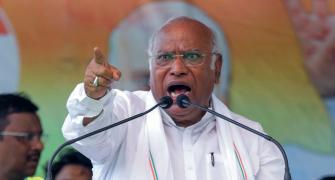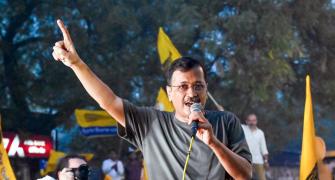An executive order signed by US President George W Bush July 17 and presented to Congress as fait accompli is worrying on two fronts: Firstly, that its wording appears calculated to block all forms of protest against the conduct of the Iraq war and secondly, that the implications of this EO have provoked deafening silence among the mainstream media outlets, both print and broadcast.
The order ostensibly seeks to expand Presidential powers as defined by earlier such orders, and to block funding of terrorists.
"I hereby report," says Bush in the opening paragraph of this order, "that I have issued an Executive Order blocking property of persons determined to have committed, or to pose a significant risk of committing, an act or acts of violence that have the purpose or effect of threatening the peace or stability of Iraq or the Government of Iraq or undermining efforts to promote economic reconstruction and political reform in Iraq or to provide humanitarian assistance to the Iraqi people."
External Link: The full text of the executive order
The problem lies in the second half of that statement -- 'Undermining efforts to promote economic reconstruction and political reform in Iraq' could, by extension, include public protests in the US over the conduct of the war, which the Administration can claim is undermining its efforts.
A little further down, comes this additional bit: "The order further authorizes the Secretary of the Treasury, in consultation with the Secretary of State and the Secretary of Defense, to designate for blocking those persons determined to have materially assisted, sponsored, or provided financial, material, logistical, or technical support for, or goods or services in support of, such an act or acts of violence or any person designated pursuant to this order, or to be owned or controlled by, or to have acted or purported to act for or on behalf of, directly or indirectly, any person whose property and interests in property are blocked pursuant to this order."
Stripped of verbiage, this part of the order permits the Secretaries of State and Defense to block the assets (that is to say, your bank accounts, your property) of anyone who is deemed guilty of undermining such US efforts in Iraq - again, by natural extension, it means that a protestor's assets can be blocked by the US government, under the terms of this order.
Bloggers, who have picked up on this order and have begun pointing out its inequities, point out that the wording of this EO is so deliberately vague that theoretically, the writing of an editorial that is critical of the war in Iraq could be deemed a `service' that is supportive of the violence in that country.
Thus, it could be argued by the Administration that by criticizing the US war effort, you are supporting or even creating the conditions for the perpetuation of violence.
The single biggest danger in this order, as bloggers see it, is that the government has left the wording unclear, thus allowing them to apply the terms in any way they like.
The order further says "Any transaction by a United States person or within the United States that evades or avoids, has the purpose of evading or avoiding, or attempts to violate any of the prohibitions set forth in this order is prohibited."
Also, "Any conspiracy formed to violate any of the prohibitions set forth in this order is prohibited."
Again, the unclear wording lends itself to multiple interpretations: for instance, a donation to a group opposed to the war prima facie violates these provisions, and hence the donor's assets could be frozen; similarly, any attempt to rally a group for a mass protest could be deemed a `conspiracy', thus entailing all participants to punitive action.
Not only does the EO deny American people the fundamental right to protest, the fact that it empowers the Secretaries of State and Defense to take punitive action goes against the Fifth Amendment, which holds that "No person shall be held to answer for a capital, or otherwise infamous crime, unless on a presentment or indictment of a Grand Jury, except in cases arising in the land or naval forces, or in the Militia, when in actual service in time of War or public danger; nor shall any person be subject for the same offence to be twice put in jeopardy of life or limb; nor shall be compelled in any criminal case to be a witness against himself, nor be deprived of life, liberty, or property, without due process of law; nor shall private property be taken for public use, without just compensation."
The amendment is violated on two counts: per this executive order, action can be taken without indictment by Grand Jury and secondly, a person can under the provisions of this executive order be deprived of his liberty and property without due process of the law.
Section 8 of the draconian EO provides the clincher: "This order is not intended to, and does not, create any right, benefit, or privilege, substantive or procedural, enforceable at law or in equity by any party against the United States, its departments, agencies, instrumentalities, or entities, its officers or employees, or any other person."
Translated from the legalese, this effectively means that if action is taken against an individual under the provisions of this EO, that person has no recourse in law against the government, or any branch thereof.







